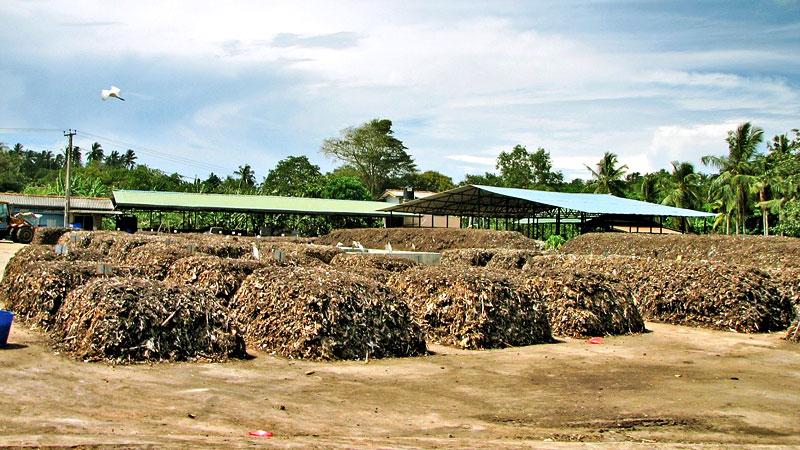
In memory of the innocent lives we lost a month ago in the Meethotamulla garbage dump collapse, LIRNEasia is will launch a “Campaign for Sustainable Solid Waste Disposal” convened by Dr. Sujata Gamage, a scientist and policy analyst with expertise and experience, in both, technical and policy issues in solid waste management (SWM). She will be assisted by Chamindha Rajakaruna, Executive Director of Sarvodaya and Hemanthi Goonesekera, National Coordinator of the Federation of Sri Lankan Local Government Authorities (FSLGA).
Campaign
 The goal of the campaign is to ensure that, by 2020, the infrastructure and the regulatory framework necessary is in place for disposing solid waste in a sustainable manner. The Meethotamulla tragedy could have been avoided if it were the case.
The goal of the campaign is to ensure that, by 2020, the infrastructure and the regulatory framework necessary is in place for disposing solid waste in a sustainable manner. The Meethotamulla tragedy could have been avoided if it were the case.
The focal point will be a collation and synthesis of the best available scientific knowledge, policy research and practical experience on SWM.
Contributors to this knowledge gathering exercise include local and international experts on SWM, policy makers, recyclers, private solid-waste service providers and other private sector actors.
The success of the campaign would depend on the effective communication of knowledge outputs to stakeholders at national, provincial, local authority and community levels. Accordingly:
LIRNEasia will take responsibility for communicating with national level policymakers so that appropriate policies may be developed and implemented. FSLGA will liaise with the next level of stakeholders, policymakers and officials at provincial and local levels.
The Deshodaya Movement of Sarvodaya will take the information to local Deshodaya Councils for grassroots level dialogue and action.
The Association of Solid Waste Assessors and Managers will work together to expand ongoing training and certification of the solid waste workers, thereby filling the human resource gaps in SWM.
Immediate action
Multiple technical sessions will be convened in the coming weeks, to develop policy briefs, videos, pamphlets, etc. The tentative schedule, including the topics, is as follows:
Jun 2: Apparently, there was no single authority to take responsibility for the Meethotamulla tragedy. Therefore, in the future, it must be determined which government entity should take responsibility for waste disposal facilities? What other entities should be part of the solution? In what manner?
Jun 16: Biodegradable waste, when landfilled or dumped, causes the most harm to communities and the environment. What does it take to process such waste safely and productively?
Jun 30: Non-biodegradable waste such as paper, plastics, polythene, glass and metal waste is increasingly portrayed as a valuable resource. What other non-biodegradable waste is generated in Sri Lanka? How much of all such waste generated is recyclable? What do we do with the rest?
Jul 14: There is much mystery surrounding waste-to-energy options in SWM. What are the available options and how do we select the best?
Jul 28: Sanitary landfills are indispensable for SWM since no waste is 100% recyclable, but, how do we make landfills more community or environment friendly?
Aug 11: Solid waste workers are the unsung heroes who keep our homes free of garbage and keep the streets clean. How can we give more dignity to the vocation and make the workers effective partners in SWM?
Next steps
Dissemination and advocacy on each topic will begin one to two weeks after each technical session.
By December 2017,
n Enable at least one sustainable solid waste disposal policy at national level through the following actions:
n Establish a clearinghouse of information on the latest policies, laws, regulations and technologies of solid waste disposal
n Disseminate widely, engaging with policymakers and the media
n Advocate vigorously, offering assistance to the government as needed
n Align policies at national, provincial and local levels in at least one local authority to direct the authority towards effective solid waste management
n Assist Deshodaya Councils and other civil society organizations to carry out civic education for dialogue and action at local authority level, so that civil society organizations are empowered to monitor and influence solid waste management in their localities The Association of Solid Waste Managers and Assessors at Local Authorities was initiated by LIRNEasia as an association for knowledge sharing and collaboration. Further, the 3R concept was propagated through the Sri Lanka Girl Guides’ Association and Sarvodaya.
A valuable lesson we learned through our action research is the need to balance 3R initiatives with final-disposal facilities for waste that cannot be recycled. Every country, even Sweden (the current exemplar in solid-waste management) began with zero recycling and 100% landfilling, and progressed to higher levels of recycling and lower levels of landfilling.
Zero waste is a lofty goal which developing countries should approach sensibly, keeping in mind the natural increase in the consumption of goods and service by the poor as they raise themselves out of poverty.
While there are many worthy initiatives to educate citizens on their role to reduce, reuse and recycle in Sri Lanka, a glaring lacuna is a forum that addresses waste disposal issues. The Campaign for Sustainable Solid Waste Disposal would fill that gap.
- LIRNEasia
